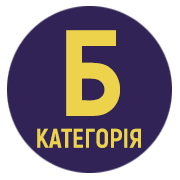THE ROLE OF ART AND ARTISTIC AREA STUDIES IN THE TRAINING OF TOURISM INDUSTRY SPECIALISTS
Abstract
The article is devoted to the study of the role of art and artistic area studies in the professional training of tourism industry specialists. It examines current challenges and labor market needs in the field of cultural tourism, which require specialists not only to organize trips, but also to have a deep understanding and interpretation of the cultural heritage of different countries and regions. The existing gap between students' theoretical preparation and the practical skills necessary for effective work in this field, in particular, the ability to analyze art objects, create cultural and cognitive routes, and provide an authentic cultural experience for tourists, is analyzed. The article justifies the need for the integration of artistic area studies into the curricula of higher education institutions, based on the analysis of the works of domestic and foreign scholars in the field of tourism, cultural studies and pedagogy. A review of the key theoretical foundations and methodological approaches to the study of artistic heritage is made, with an emphasis on the interdisciplinary nature of this field of knowledge, which combines elements of history, geography, art history and ethnology. The structure of competencies that need to be formed in future tourism industry specialists for successful activity in the field of cultural tourism is characterized in detail. Cognitive competencies, related to in-depth knowledge of artistic styles, eras and objects, functional competencies, aimed at developing the ability to analyze, design and organize tourism products, intercultural competencies, necessary for effective interaction with tourists from different cultural backgrounds, as well as digital competencies, that ensure the use of modern information technologies in professional activity, are distinguished. Particular attention is paid to the justification of innovative methodological approaches to the teaching of artistic area studies, such as the integrative, problem-oriented, case study, project-based learning, and the use of digital technologies. Examples of the effective use of virtual tours, interactive maps, 3D modeling, and mobile applications in the educational process are considered. The importance of strengthening the practical component of education, including internships in museums and tourism companies, participation in cultural projects, the development of real tourism products and international exchanges, is emphasized. The article also proposes a comprehensive approach to the assessment of formed competencies, which involves combining traditional control methods with innovative forms, such as a portfolio of projects, simulations, public presentations and expert assessment. The conclusion is made about the key role of artistic area studies in the training of tourism industry specialists, capable of working effectively in the field of cultural tourism and providing a high-quality and authentic tourist experience for visitors.
References
Любіцева О. О. (2002). Ринок туристичних послуг: геопросторові аспекти. Київ : Альтерпрес.
Ковальчук І. П. (2015). Туристичне країнознавство: регіональний вимір. Київ : Знання.
Головенкін В. П. (2019). Педагогіка вищої школи. КПІ ім. Ігоря Сікорського.
Скрипченко І. Т. (2019). Інноваційні технології в туристичній освіті. Київ : Освіта.
Gretzel U., Mazanec J. A. (2022). Innovative technologies in tourism: Artificial intelligence, big data, and beyond. Tourism Review, 77(4), 759–774. DOI: 10.1108/TR-09-2021-0418
Presenza A., Camillo A., Splendiani S. (2021). Digital transformation and innovation in tourism: Challenges and opportunities for destination management. Journal of Tourism Futures, 7(2), 145-160. DOI: 10.1108/JTF-09-2020-0161
Femenia-Serra F., Neuhofer B. (2022). Digital tourism entrepreneurship: A systematic literature review of technologydriven innovation in tourism. International Journal of Contemporary Hospitality Management, 34(6), 2127–2153. DOI: 10.1108/IJCHM-09-2021-1156
Egger R., Gálvez-Rodríguez M. D. M. (2021). Artificial intelligence and tourism: Critical insights and future perspectives. Information Technology & Tourism, 23(3), 427–445. DOI: 10.1007/s40558-021-00209-1
Sigala M. (2022). Tourism and COVID-19 pandemic: Creating transformative research frameworks for future tourism management and marketing. Journal of Travel Research, 61(6), 1131–1146. DOI: 10.1177/00472875211041610





